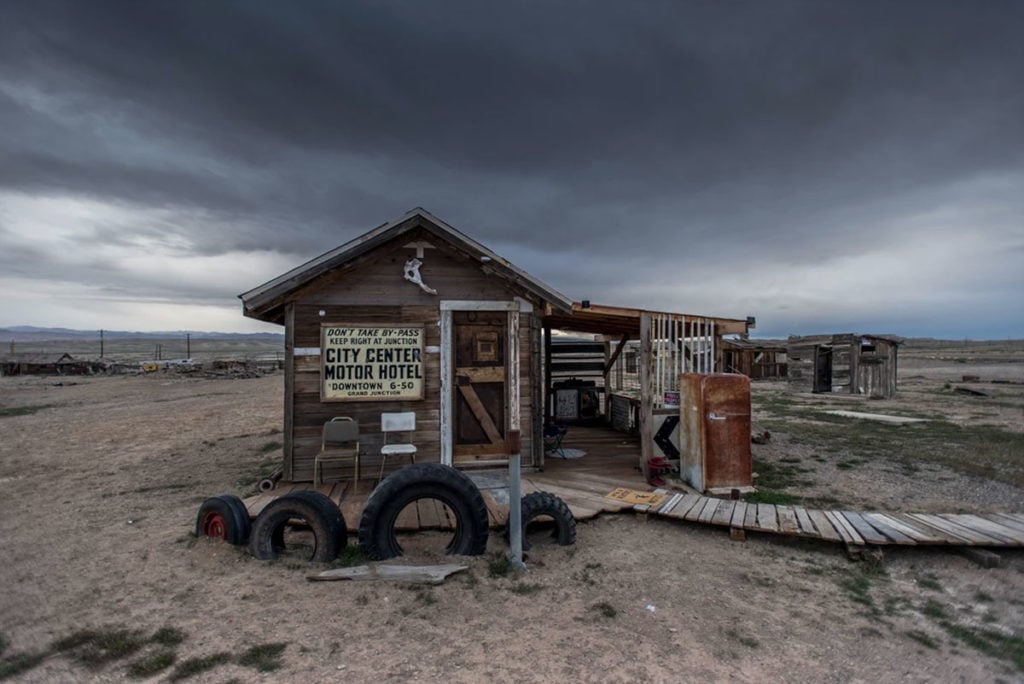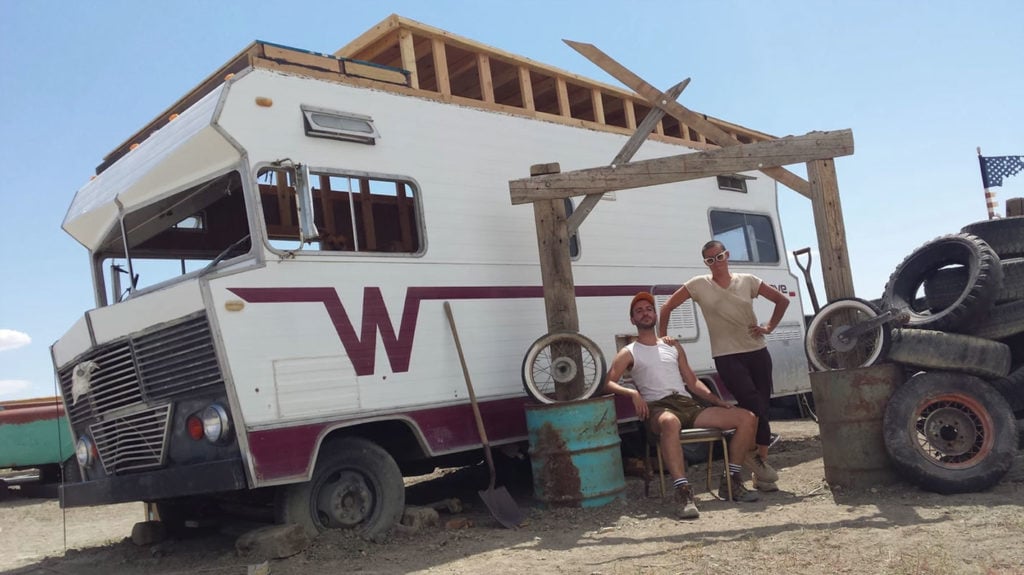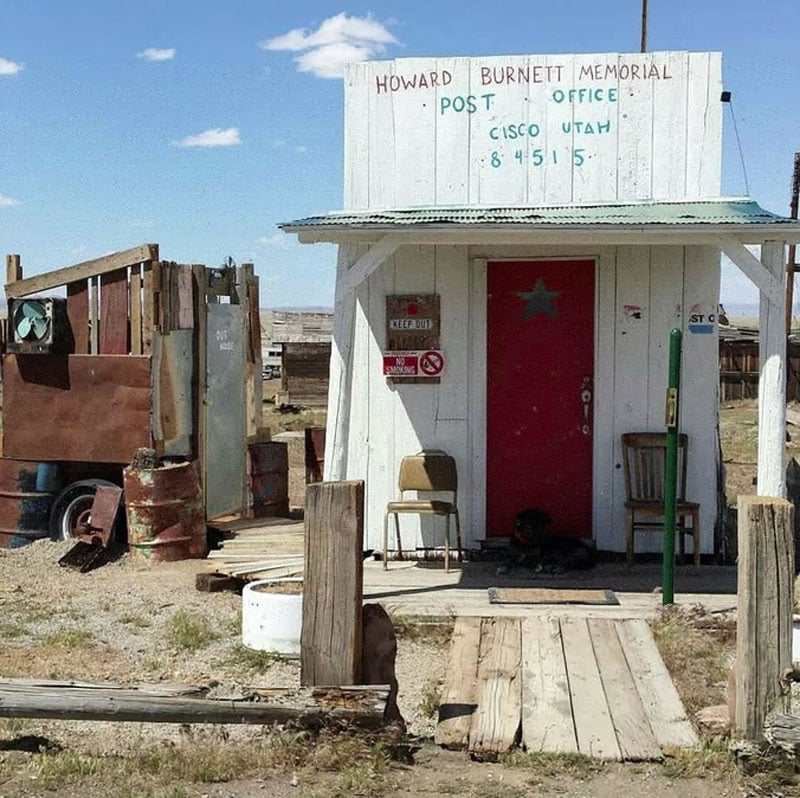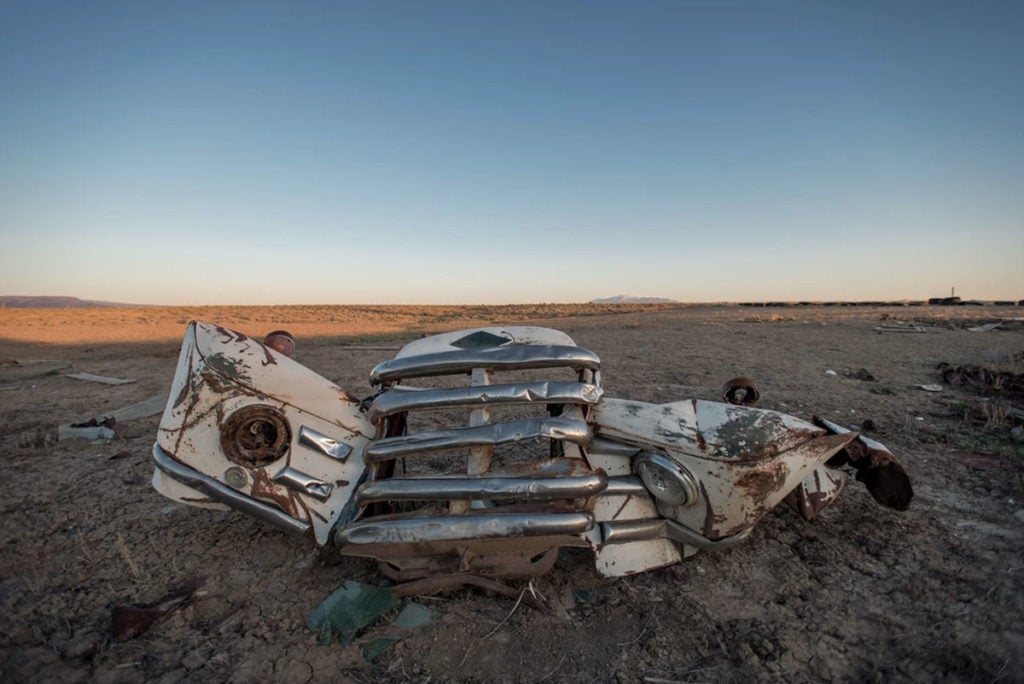Art World
The Most Offbeat Artist Residency in the World May Be This One in a Winnebago Parked in a Utah Ghost Town
The residency's founder, artist Eileen Muza, is the town's sole resident.

The residency's founder, artist Eileen Muza, is the town's sole resident.

Taylor Dafoe

Cisco, Utah, was once a bustling stop for transients on the Denver and Rio Grande Railroad. Today, it’s a veritable ghost town, dotted with dilapidated shacks, broken-down cars, and dust-coated vestige of the people—many felonious—who once called it home. It also has a population of one.
That solitary citizen is a young artist named Eileen Muza. And she is turning her adopted home into an artist’s haven.
This year, Muza launched Home of the Brave, a three- to five-week residency program for artists in Cisco. Applications for the first residency, which begins on October 1, are open now.

Eileen Muza (right) in front of a Winnebago-turned-artist studio. Courtesy of Eileen Muza.
So how did one young artist end up as citizen zero for a town that has been abandoned since the late ’80s?
Muza first visited Cisco in 2015 when, on a plane to visit to Canyonlands National Park in southeastern Utah, a stranger sitting next to her suggested she stop there along the way. When she did, she found a place that felt as if “people just got up and left,” she says.
All that remained was a selection of objects, weird and wonderful alike, that had stayed behind. Each one—a satellite dish, an uneaten bag of chips, a blonde wig, gay pornography—provided a peek into the lives of the people who once called this place home. In what is now her log cabin home, she found an abandoned exercise bike.
She purchased the land—or, in other words, the entire town—a couple of months later. She emptied her savings account to buy it, though she said the cost was what “someone with a good job probably spends on vacation.”
“I did the math and I realized, I spend at least that much paying rent over winter,” Muza tells artnet News. “I thought, if I buy this place and sublet my house, I can go on a little adventure. At worst, it gets weird. At best, I have a place to be that’s my own. And who knows what could happen from there.”
Since 2015, Muza has spent most months of the year in Cisco. Working with her sisters Renée and Margaret, who are also artists, Muza is in the process of restoring the town using recycled materials. There is no running water or convenient access to food, but the town has been outfitted with wifi and electricity.

Cisco, Utah. Courtesy of Eileen Muza.
Well before Muza arrived, Cisco had become a cultural symbol of the death of the Wild West. The town made an appearance in the 1971 cult action film Vanishing Point and was a site of filming for Thelma and Louise (1991). In 1967, Johnny Cash recorded “Cisco Clifton’s Filling Station,” a song about a generous old man in the town who operated a gas station and hosted a game of checkers. In the song, Clifton watches as an interstate is erected nearby, fearing that it will put him out of business. (The story isn’t far from the truth: The construction of I-70 bypassed the town in the late ’60s, a death knell that rendered its primary function as a pit stop for westbound travelers irrelevant.)
Muza, though, isn’t interested in romanticized western iconography. For her, Cisco represents “ingenuity.”
“It has a very handmade feeling to it,” she says. “You can tell that the people who made these structures weren’t carpenters but people who just needed a place to live.”

Cisco, Utah. Courtesy of Eileen Muza.
Artists in residence will have the run of the place and will be provided with a $500 stipend, a private outdoor kitchen, and studio space in the form of an old Winnebago camper retrofitted with skylights and a private deck. And for those who incorporate found materials into their practice (as Muza does in her own work), plenty will be available. Visitors are as likely to find floppy disks as they are fossilized shells left by the prehistoric sea that once covered the area, the residency’s description explains.
Artists of all disciplines and dispositions are encouraged to apply. They should do so quickly, as applications have already started rolling in. Five finalists will be chosen by a loose “jury” (Muza and her two sisters) by July 1.